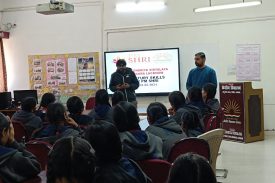Innovations
Innovation in schools involves implementing new ideas, methods, and technologies to improve education, making it more engaging and effective. Key areas include technology integration (digital tools, online platforms, VR/AR), curriculum development (STEM/STEAM, project-based learning, interdisciplinary studies), and innovative teaching methods (flipped classrooms, personalized learning, collaborative learning). Assessments have evolved with formative assessments, competency-based education, and e-portfolios. Learning environments now feature flexible classrooms, outdoor spaces, and maker spaces. Social and emotional learning is supported through mindfulness, character education, and peer mentoring. Schools are also enhancing community and global engagement through service learning, global collaboration, and local partnerships. These innovations require collaboration among educators, students, parents, and the community to create a dynamic, inclusive, and effective education system for the future.





